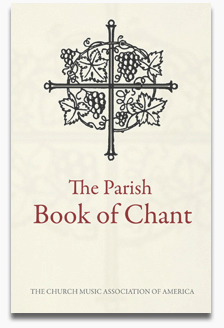Q: I’m a Catholic musician and I should know chant. I know that. I’m embarrassed to say that I can’t even read the notation!
A: That’s one of the reasons we hold the colloquium. Most participants don’t have prior experience in chant notation. We have classes that start at the very beginning. You will not feel intimidated at all. Quite the reverse: people here love to teach and inspire.
Q: The Colloquium sounds dreamy to me but there is one touchy issue: I’m not Catholic. Is that okay?
A: The Colloquium is attended by participants from many faith traditions — they feel right at home. The music and the intensity of the task at hand works to create a unity and camaraderie among us all.
Q: I don’t know how any of this music even goes. I’ve heard bits and pieces but I will know far less than everyone else.
A: This is a journey for all of us. There is way too much music for people to get to know in their lifetimes. In some way, all of our knowledge is spotty, and we all have to start somewhere. The experts at the Colloquium love nothing more than to teach.
Q: I’m looking at the musical lineup and I can’t fathom how I can sing this after just a few rehearsals. Forget it!
A: You won’t be asked to sing it all. There are 4 polyphony choirs and 8 chant choirs, all at levels appropriate to your own interest and experience. We’ll divide up the work. Some people will more quickly master this material than others. But there is strength in numbers here. You will be surprised how quickly you will catch on. In any case, one reason for the Colloquium is to stretch what all of us can do.
Q: I know no Latin. I mean none, not even how to pronounce it. Surely this Colloquium isn’t for me.
A: Not so! To come and sing requires no prior experience in Latin. The classes work on pronunciation, and you will be surprised at how intuitive it is.
Q: I’ve been singing sacred music for 40 years, including chant and polyphony. There’s nothing for me to learn here.
A: You know how great the music is, so imagine being with hundreds of others who are like-minded, studying under great conductors, singing in fun rehearsals and solemn liturgies for a full week. This is the conference you always wanted to attend but could never find.
Q: At my parish, we sing what is often called praise music, and I really like it! I don’t want to be around anyone who will put down contemporary song.
A: That’s not the idea of the colloquium at all. We have a focus and that is the music specifically named in the documents of the Second Vatican Council. The goal is broaden our musical horizons to include music that is actually attached to the Catholic liturgy, and show that it is doable, beautiful, and central.
Q: I love chant. I love polyphony. I love sacred music. But I’m the only one I know. I’m all alone.
A: You are not alone. There are multitudes that share your view, maybe not in your parish but you can learn enough to actually start something wonderful right where you are. It only takes a few singers to make the difference in a parish. You are being called!
Q: But I don’t know anyone else who is going.
A: That’s okay. Most people arrive not knowing anyone else. Everyone makes an effort to befriend people who come alone. You will not be eating or singing or walking by yourself. Sacred music people are some of the friendliest people you will ever meet.
Q: The music sounds pretty but I’m repelled by serious, frown-faced sophisticates who don’t know how to have fun. Isn’t Gregorian chant all about being solemn all the time?
A: The liturgy is solemn but the conference itself is fabulous fun, as anyone who has ever attended can tell you. The rehearsals are a blast while being very educational. There are prayerful times and times of hilarity. Through it all, you will make friends for life.
Q: Listen, I would love to come but this conference is outside my budget.
A: Because the CMAA is an all-volunteer organization. There are no high salaries to pay and a no big infrastructure to keep up. This allows us to keep down the price to the lowest possible level. (Consider that the price includes tuition, materials, lunch every day, two gala dinners and a Sunday brunch, and the best instruction in the world. For an entire week. It’s a bargain.)
Feel free to ask more questions. Programs@musicasacra.com
 The Parish Book of Chant is published by the Church Music Association of America as a unique resource for choirs, priests, families, and congregations who seek to sing and understand the universal musical tradition of Catholic people. It is a hardbound volume, 182 pages, with a very beautiful cover and outstanding print quality, available for $14 per copy. It has been developed with the hope of bringing to life what the Second Vatican Council called a “treasure of inestimable value,” which is our Gregorian tradition of song.
The Parish Book of Chant is published by the Church Music Association of America as a unique resource for choirs, priests, families, and congregations who seek to sing and understand the universal musical tradition of Catholic people. It is a hardbound volume, 182 pages, with a very beautiful cover and outstanding print quality, available for $14 per copy. It has been developed with the hope of bringing to life what the Second Vatican Council called a “treasure of inestimable value,” which is our Gregorian tradition of song.